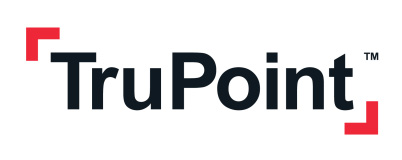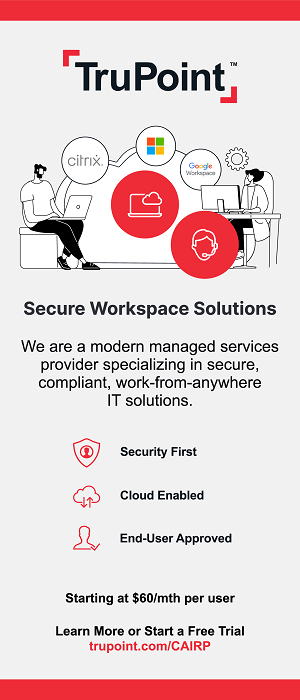Rebuilding Success Magazine Features - Spring/Summer 2025 > Practical AI for Bankruptcy Firms: Real-World Applications and Key Considerations
Practical AI for Bankruptcy Firms: Real-World Applications and Key Considerations
 |
By Michael Turcsanyi, CEO, TruPoint
Sponsored Content

Introduction
Artificial Intelligence (AI) is rapidly transforming business operations across industries, and bankruptcy firms are no exception. With the rise of tools like OpenAI's ChatGPT, Microsoft Copilot, and Google Gemini, business users—regardless of their technical expertise—are now leveraging AI to enhance efficiency in their daily workflows. This shift is particularly valuable in administrative-heavy organizations such as bankruptcy trustee firms, where AI can automate time-consuming tasks, reduce errors, and improve decision-making.
This guide explores how trustee practices can prepare for AI integration, focusing on Microsoft Copilot and Microsoft 365 tools. It provides insights into the foundational steps, security considerations, policy recommendations, and real-world use cases to help bankruptcy firms harness AI effectively and securely.
Preparing Your Practice for AI
Data Preparation
One of the first steps in AI adoption is organizing and structuring business data. Trustee firms manage extensive electronic records, and many are moving from traditional file storage systems to Microsoft SharePoint in preparation for AI-powered workflows. Microsoft SharePoint, when implemented correctly, enhances Microsoft Copilot’s capabilities by ensuring that data is properly labeled, indexed, and permissioned. This allows AI to retrieve and process information more efficiently, enabling better document management and collaboration.
Paid vs. Free Microsoft Copilot
While free AI tools might seem appealing, they pose significant risks for corporate data security. Free versions of AI platforms often use user inputs to train public models, potentially exposing sensitive financial and legal information. A paid Microsoft Copilot subscription offers enterprise-grade security, ensuring that firm data remains isolated, encrypted, and compliant with industry regulations. Investing in a paid version not only protects sensitive information but also ensures AI-generated outputs are relevant and safe for professional use.
AI Acceptable Use Policy
Given the growing accessibility of AI tools, Trustee firms should establish an AI Acceptable Use Policy. This policy should:
-
Define which AI tools employees can use.
-
Outline security and compliance guidelines.
-
Specify how AI-generated content should be reviewed.
-
Ensure AI does not replace human judgment in legal and financial matters.
Establishing clear policies will prevent unintended data leaks and help maintain professional integrity.
Real-World AI Applications for Bankruptcy Firms
Microsoft Teams Meetings
AI can significantly enhance meeting productivity through Microsoft Copilot in Microsoft Teams. Features include:
-
Automatic Meeting Notes: AI-generated notes capture key points discussed, eliminating the need for manual note-taking.
-
Meeting Summaries: Summarized discussions help participants quickly review past meetings without replaying entire recordings.
-
Action Items: AI identifies and organizes action items from discussions, ensuring follow-ups are clear and actionable.
Example: A trustee firm uses Microsoft Copilot to summarize a creditors’ meeting, automatically extracting key decisions and next steps for easy reference.
Document Summaries
Bankruptcy firms handle lengthy legal and financial documents daily. Microsoft Copilot, integrated within Microsoft 365, allows users to:
-
Summarize documents into concise paragraphs and bullet points.
-
Extract specific sections of interest without manually searching through pages.
-
Interact with large PDF files by asking AI targeted questions.
Example: As part of the review of a 50-page insolvency case file, Microsoft Copilot can be used to generate a high-level summary and extract key financial details.
Suggested Email Replies
Email overload is a common challenge in professional services. AI can streamline email communication by:
-
Generating suggested responses based on the email’s context.
-
Allowing users to customize and refine drafts before sending.
-
Maintaining a professional and consistent tone in client interactions.
Example: A trustee receives multiple inquiries from creditors regarding repayment schedules. Microsoft Copilot suggests well-structured responses, reducing the time spent drafting individual emails.
Virtual Assistant for Daily Operations
Microsoft Copilot includes a ChatGPT-like assistant that integrates seamlessly with Microsoft 365, allowing users to:
-
Retrieve case-related documents and data instantly.
-
Generate reports based on internal data.
-
Automate administrative tasks such as scheduling and reminders.
Example: A trustee needs to find all communication records related to a particular case. Instead of manually searching through emails and files, they ask Microsoft Copilot, which retrieves the relevant documents within seconds.
AI Disclaimer: Understanding AI’s Role
While AI provides significant efficiencies, it is not a replacement for legal or professional judgment. Trustee firms must:
-
Use AI as a supplement rather than a substitute for legal analysis.
-
Ensure compliance with industry regulations and ethical standards.
-
Prioritize security by using enterprise-grade AI tools like Microsoft Copilot.
Summary: Why Bankruptcy Firms Should Start Exploring AI
The AI revolution is here, and bankruptcy firms have a unique opportunity to streamline operations, reduce administrative burdens, and enhance client service. By implementing AI responsibly—through structured data management, secure AI tools, and clear policies—trustee practices can gain a competitive edge while maintaining compliance and professionalism.
✔ Save hours each week on administrative tasks.
✔ Improve accuracy and efficiency in document handling and case management.
✔ Enhance communication and collaboration across teams.
✔ Ensure compliance and security with enterprise AI solutions.
Now is the time to embrace AI. Firms that start integrating AI today will gain a competitive edge, operate more efficiently, and be better prepared for the future of bankruptcy practice.
